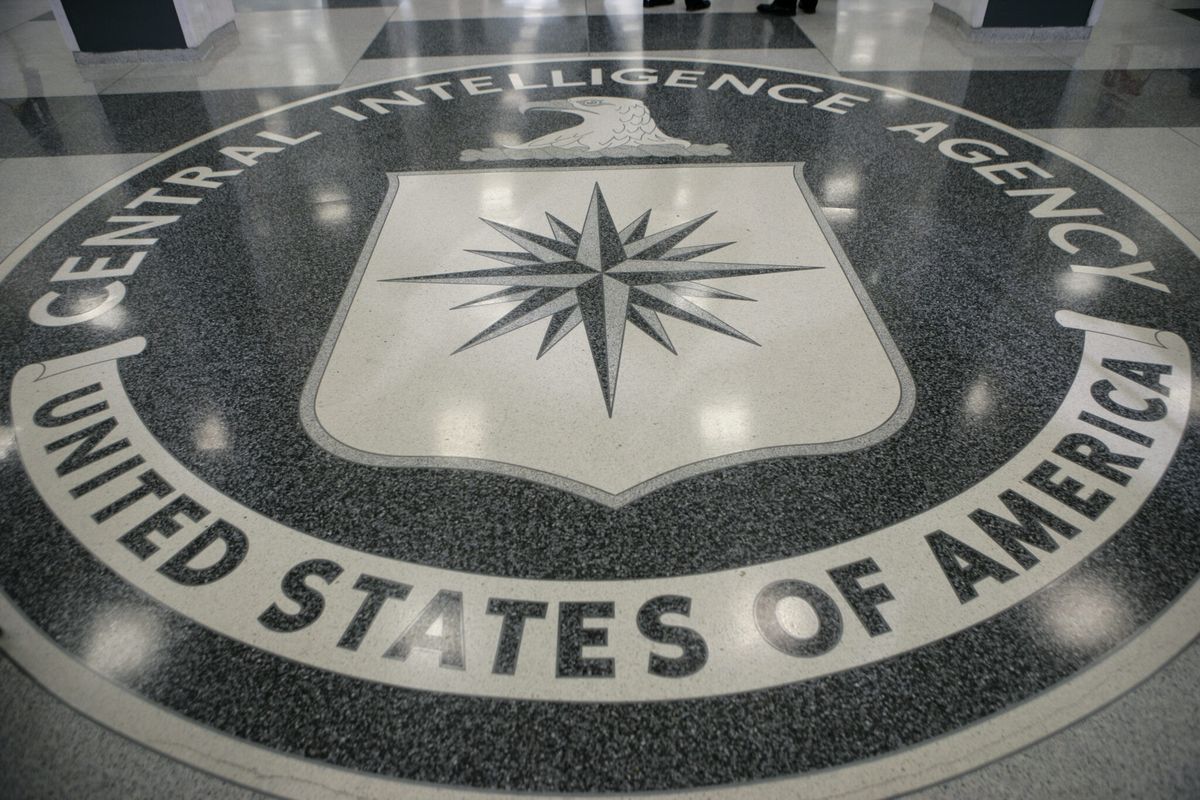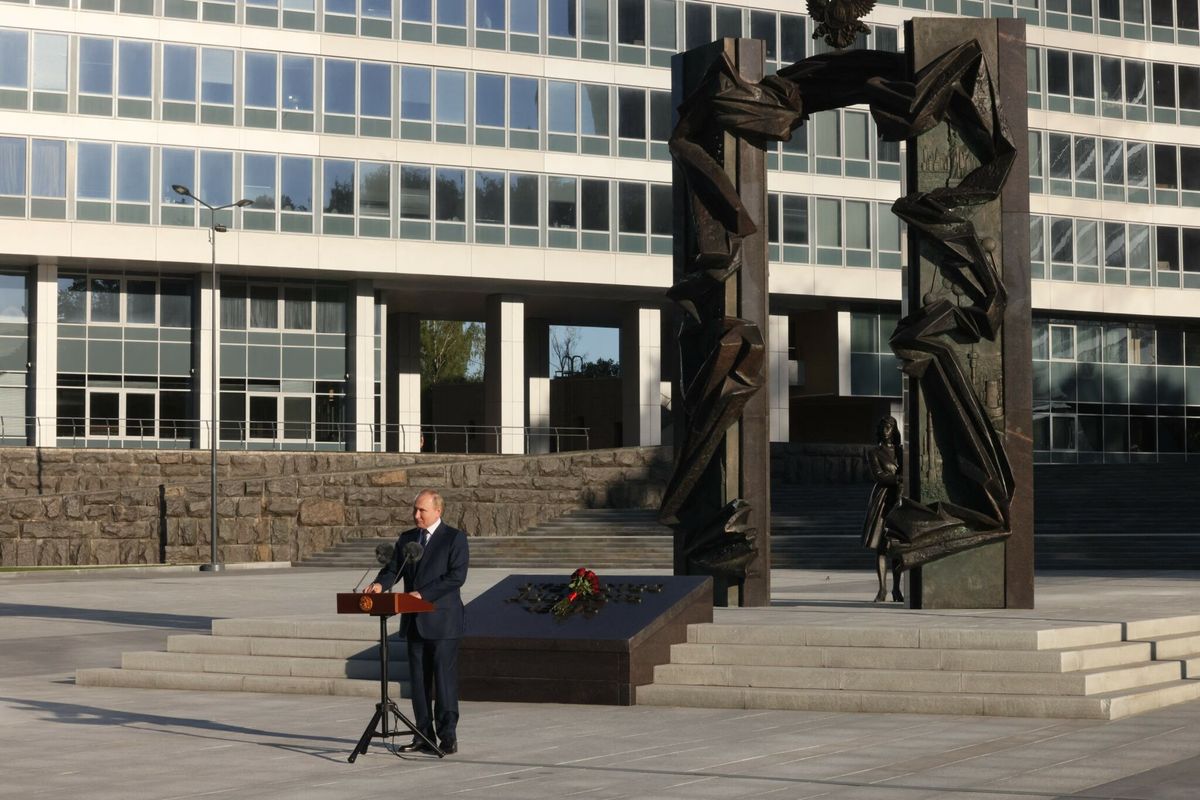The Cipher Brief sat down with David Hoffman to discuss his new book, The Billion Dollar Spy. He gave us his thoughts on storytelling and what he’s learned after years of covering Russia as a journalist.
The Cipher Brief: How did you make the transition from journalism to writing books full time?
David Hoffman: It really wasn’t a transition. I did both. I was the Moscow Bureau Chief for the Washington Post and worked on my first book, The Oligarchs, while I was the Bureau Chief there. I then came back to Washington and was an editor at the paper—the foreign editor and the assistant managing editor for foreign news—for nine years. In those years, I worked on my second book. So actually, I’m one of those people late in my journalism career that…it wasn’t so much a leap as a saunter over to a new kind of storytelling.
TCB: You have covered a number of beats - The White House, the State Department. You also spent time in Jerusalem. But all of your books deal with Russia. What is it about Russia that you find so compelling?
DH: First of all, I covered Reagan’s 1980 campaign and then his entire presidency. I remember well what those years were like, and yet I only saw half of it, which was really the American side. The Soviet side was really, really hard to understand, and I wasn’t a correspondent in Moscow in those times. Later, the Washington Post sent me to Moscow when the Cold War was over, and I spent six years as the Bureau Chief, and I began to see that the Cold War actually did have two sides. If you listen to it in stereo, in other words, looking at what I learned and what we knew from Reagan’s time and what was happening on the other side, there would be a whole new story. So, to be honest with you, The Oligarchs was a book that grew out of my own journalism about them and that time. But The Dead Hand was a book that grew out of my curiosity about the stereophonic nature of the history to try and get both sides. The Dead Hand benefited from documents from inside the Soviet Communist Party Central Committee Defense Department that had never been seen before. I could begin to show what was going on in the Kremlin, what they were thinking and saying, not based on some bologna they published in their press, but based on their real internal working documents to understand, for example, their reaction to Star Wars or the biological weapons program. This book (Billion Dollar Spy) also grew really out of the process of writing The Dead Hand, because I came across this case then. It’s heavily reliant on 944 pages of documents I got from the CIA, but it also was reliant on the fact I went to Moscow, I did research, I walked in the parks where this operation unfolded, I examined documents, and I tried to build out the story on my own. So Russia has become my professional preoccupation, but that all grew out of the journalism I did in my career.
TCB: You talked about covering the Cold War from both sides in stereo. Over the years that you followed Russia, what would you say is the biggest misconception covering the U.S. side of the equation? What has been sort of the biggest surprise for you from looking at things from the Russian perspective?
DH: That’s a really big question and I could talk for hours about that. But one of the most remarkable things that I discovered, even to this day, is that in the period of the Cold War - the late Cold War that I am personally familiar with, as well as the early Cold War - we repeatedly exaggerated and overestimated Soviet capabilities, and they did the same with us. People often times say, “Well, the Cold War was dangerous and those big nuclear armed missiles were dangerous,” and we think of the danger in terms of the hardware. But all of my works suggest that the real danger wasn’t the hardware. The real danger was mistrust, misperception, and secrecy. It was the software. It was actually the fact that these two heavily armed, ideologically driven blocs couldn’t see each other clearly, and therefore they made a lot of mistakes. And one of our mistakes was to see the Soviets as 10 ft. tall when they were really struggling all the time to catch up with us, always trying to catch up. In the area of radar, which is what Tolkachev was involved in, they were struggling to catch up with the West. By the way, in terms of MIRVing and missile guidance, they were struggling. And you may remember that Reagan campaigned-and there was a lot of conservative talk about the window of vulnerability in the early 1980s – on the idea that we had only a very limited amount of time before the Soviets could overtake us in the power and accuracy of their missiles. But in The Dead Hand, I pointed out that the window of vulnerability didn’t exist. They did not have the precision-guided systems to threaten our minuteman missiles. It simply did not exist, and Reagan stopped talking about it in 1983 completely. So there are lots of these incredible moments where if you go back to this dangerous period in history, you see that weapons and hardware don’t have brains. It was the brains that made the biggest mistakes.
TCB: Do you think there are similar misconceptions today, maybe not so much about Russian capabilities, but Russian intent?
DH: Intent is always difficult, and both capabilities and intent are as difficult today as they were then. Russia is no longer an open society, and the change in mood of recent years, especially the last year and a half, I find a very dramatic change, even from early Putin and way far away from Yeltsin. In Yeltsin’s times, things were beginning to open up enough that we could begin to work together. The Dead Hand chronicles a lot of that work together on the Nunn-Lugar Program. The book is largely about many of those efforts of cooperation. It wasn’t perfect. But now it’s much harder to see into what’s going on in the Kremlin, because the number of sources has been radically reduced. There is only one guy in charge. Now Putin has essentially eliminated competing power centers, so we’re back to where we were in Soviet times in trying to understand them. Russia today is not the Soviet Union. This is a different time and place, and our adversaries and the dangers that confront the United States are not as singular as they were in the Cold War. We actually have multiple fronts now, of which Russia is only one. But I think this problem of opacity, of trying to see into minds and trying to understand intent, is coming back at us in a big way.
TCB: What should readers take away from The Billion Dollar Spy?
DH: This is the story of a single Cold War intelligence operation, and I emphasize operation. It’s the story of one complex operation. You might even compare it to sort of the story of a moonshot. In a moonshot, there’s lots of risk and things can go wrong and people put their lives at stake, and yet the people working on it want to make sure that every hose is attached, that nobody’s oxygen breaks. This is the story of a group of people that carried out an operation and the subject of their operation, and how well they did with that moonshot. And it was harrowing, stressful, and tense, and of great benefit to the United States.
So in that story, the big issue is why did the one man, who is the singular source for so much of this, who was the spy, why did he do it? He did it because he was motivated by anger at the Soviet system and by anger of some of the history that touched his wife’s family. The book demonstrates that human source intelligence is invaluable. The kinds of things we learned from Tolkachev—the agent, the spy—could not have been learned by satellites, could not have been learned by signals intelligence. It was material that was unique.
One time, Tolkachev brought his case officer 179 rolls of film, and the case officer took out his little baggy and said, “Well this is all I got,” and Tolkachev said, “It won’t fit. Here, take my briefcase with all of the film inside it.” You cannot imagine how dangerous that was. His fingerprints were all over it. If the KGB had seen this, he would have been arrested immediately. And inside those 179 rolls of film were all kinds of things we never knew about. Tolkachev was the first guy to identify the Soviet AWACS and all kinds of information about radars and missiles. So human source intelligence, that briefcase full of film, is extremely valuable, even today. It has not been as popular as some of the technological advancements in intelligence, but I think the lesson of the book is that human source intelligence remains vital. And even today, when we are intercepting things and reading other people’s email, and so on, there is still a level at which one single great human source can bring things that you can’t get any other way.
TCB: What do you find most compelling about your main character, about Tolkachev himself?
DH: Well I never met him, but I did have the benefit of his letters to the CIA. There are not many, but it’s very raw, and I think that it’s very, very clear that this fellow was determined. And I use the word determined in a very specific sense. He was unshakeable, and he knew the dangers. He told his case officers, “Everything we do is dangerous.” So he was very self-aware of the risks he was taking. The CIA would periodically say, “Slow down. Take it easy. We are worried about your security.” He said, “I got more stuff for you.” And time and again you see that his determination drove everything. He originally gave them a plan that he would conduct espionage over several stages, over several years, and how he would do it. He was an engineer so he liked everything to be neat and written down, and in the end, he over-fulfilled that plan. He brought out everything he said he was going to bring out years earlier. So I think that the central fact is that what was driving this guy was not some whim. He wasn’t doing this based on impulse. He was deeply determined, as he put it, to do the maximum damage to the Soviet Union in the shortest amount of time.
David E. Hoffman is a contributing editor at The Washington Post and a correspondent for PBS's FRONTLINE. He is the author of The Dead Hand, about the end of the Cold War arms race, and winner of a 2010 Pulitzer Prize.













